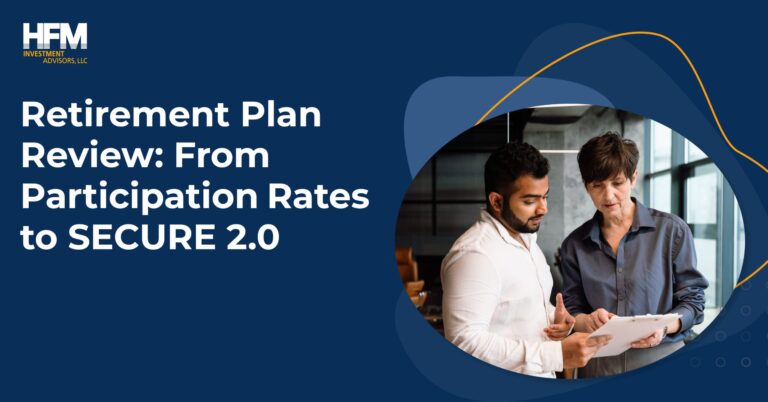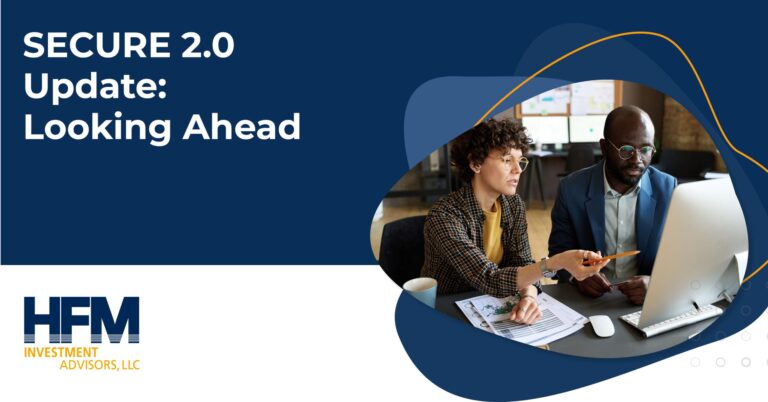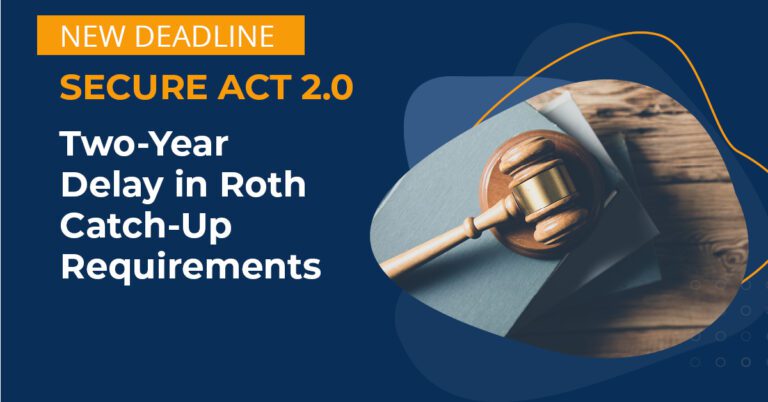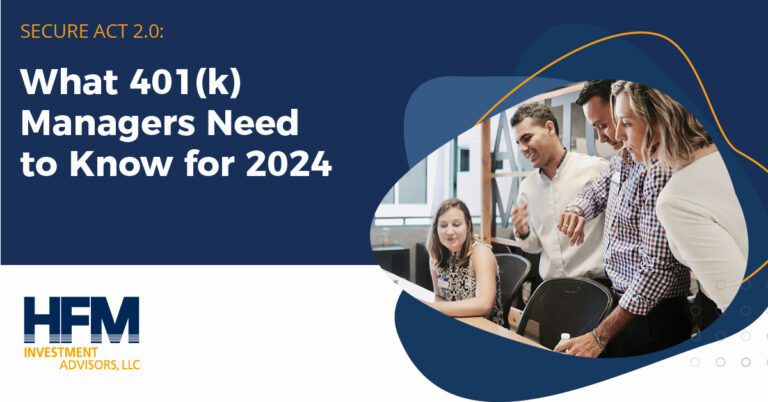Category: Secure Act

October 9, 2024 •
Retirement Plan Review: From Participation Rates to SECURE 2.0

August 12, 2024 •
SECURE 2.0 Update: Looking Ahead

August 30, 2023 •
SECURE Act Update: Two-Year Delay in Roth Catch-Up Requirements

No results found.




